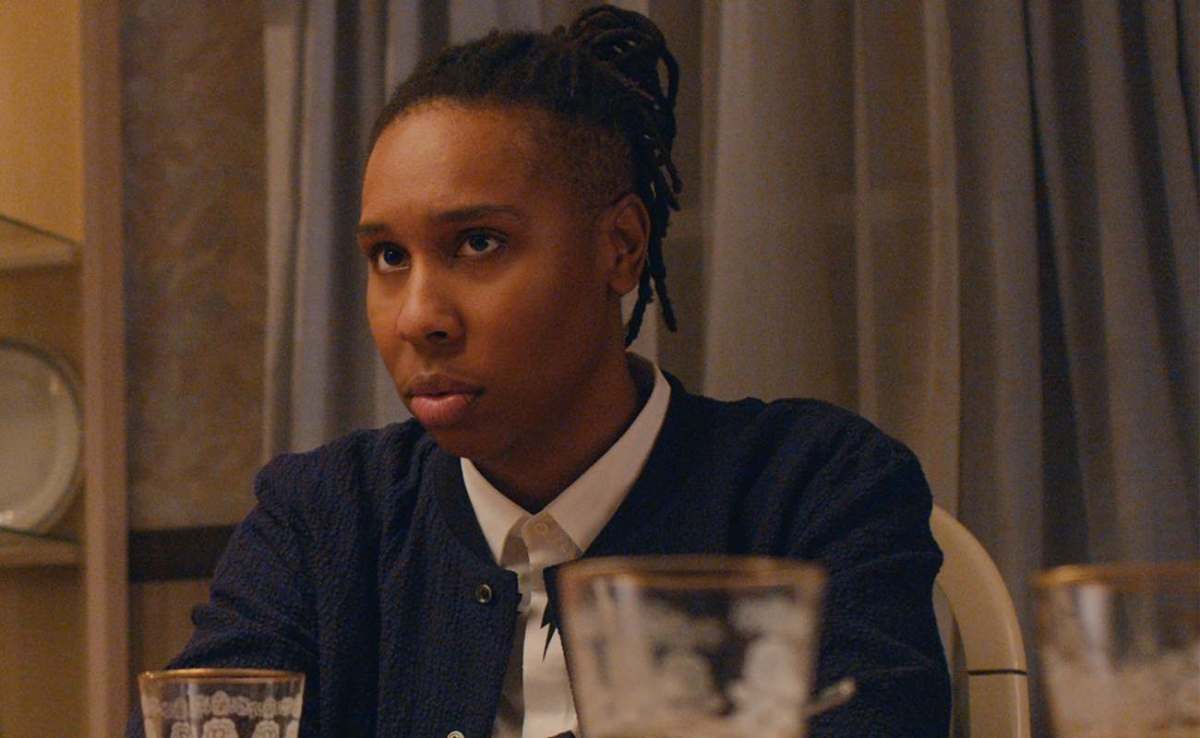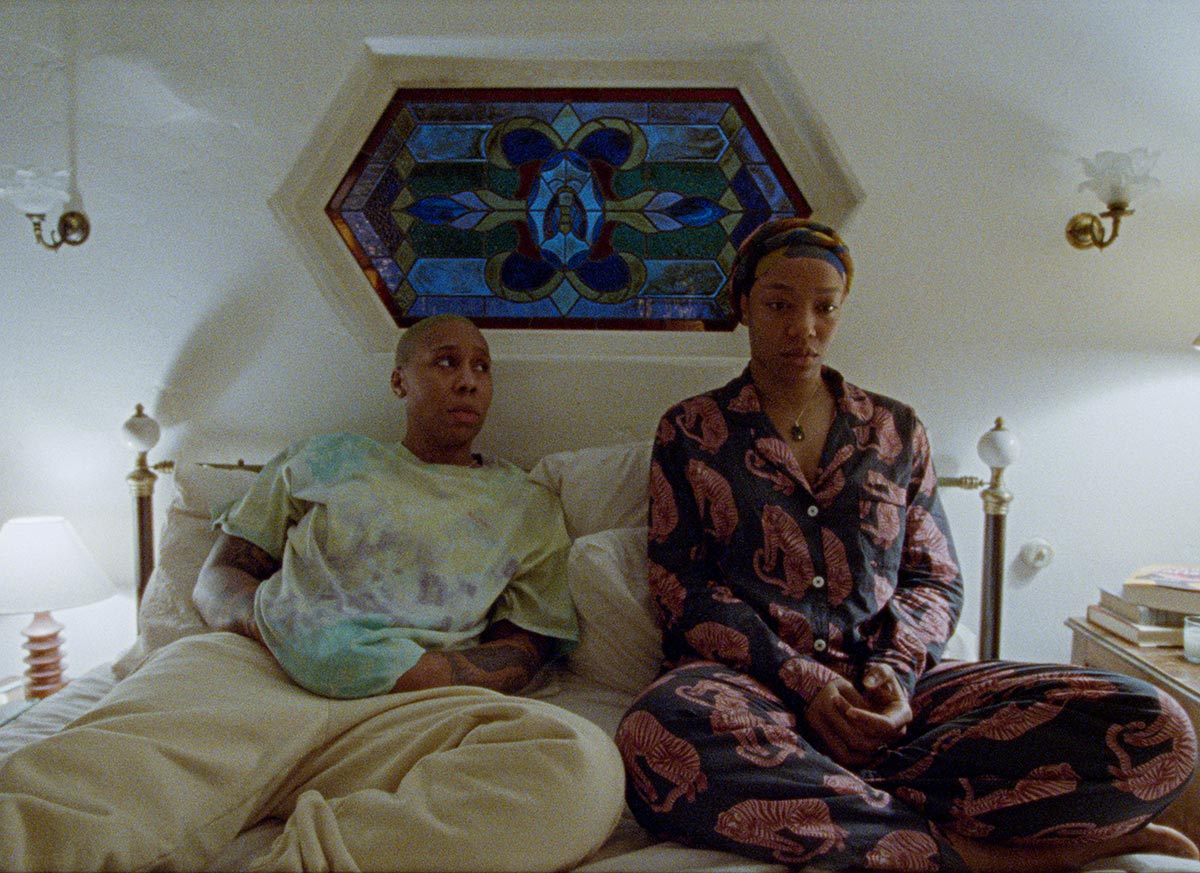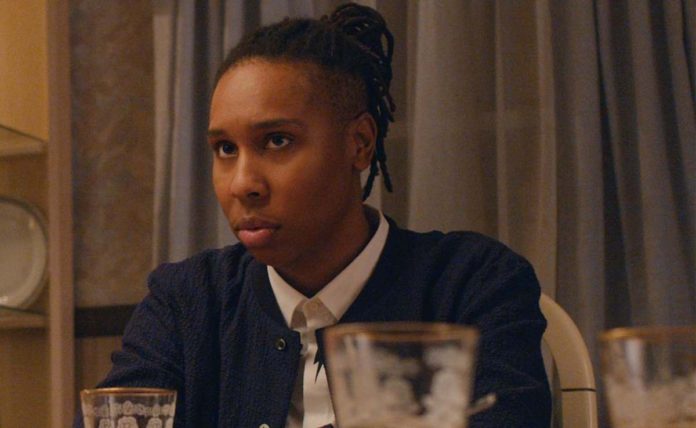I’ve wanted the opportunity to interview Lena Waithe since the minute I started writing about television as a career. I realize that sounds some kinda way to say out loud (which kinda way? I fear someplace between braggadocious and a “speak your truth into life” motivational Twitter post) but there are few things I love as much I love Black television, Black film, and queer shit — and Lena Waithe exists smack dab in the middle of that Venn diagram. When Lena Waithe’s Master of None press tour came with the offer for even the slimmest five minutes to sit with her in front of a camera, I nearly broke my wrist I responded so fast.
“We are… Human. Beautifully. And what I hope I also do, is never try to make it seem as if we are perfect.” We maybe only have five minutes together but if it’s one thing lesbians are gonna do, it’s get the job done and so we immediately got to the meat of what matters. In Autostraddle tradition, this is usually the part of the introduction where we give an explainer on the person we’re interviewing. But there are few queer creators working right now in Hollywood who have a reputation that enters the conversation before they do quite like Lena Waithe. In fact, chances are high that when you saw her name in the title of this piece — especially, though not only, if you’re Black — on some gut level your mind was already made up on what you’d expect.

Lena Waithe as Denise, “Master of None” Season Two (2017)
Since charming hearts as Denise in the OG seasons of Master of None, in 2017 becoming the first Black woman to win an Emmy in comedic writing and proclaiming from the awards stage, “to my LGBTQIA family. See each and every one of you. The things that make us different, those are our superpowers… because the world would not be as beautiful as it if we weren’t in it” — Lena Waithe set a bar that was hers alone to surpass. Whether or not she’s met that bar depends on how you’re looking or who you ask. Her 2019 feature writing debut Queen and Slim became somewhat of a community shorthand for Black trauma on film (it remains one of the most hurtful moviegoing experiences that I’ve had) and her most recent production credit, the television series Them on Amazon, has quickly become yet another bat signal of Black trauma (though it’s worth noting that despite misperception given that her production credit was all over the promo material, Waithe wasn’t a creator or writer on the show). Fixation on violence and trauma also circles Waithe’s The Chi on Showtime, along with behind-the-scenes harassment between cast members in the show’s early seasons.
The Chi, however, also happens to have the largest single cast of Black LGBT women characters ever on television. And that’s Lena Waithe in a nutshell. Her work is never just one thing. In addition to creating the largest cast of Black LGBT women characters, Waithe also created the first Black butch protagonist on a television show in BET’s Twenties, which alongside her take on Boomerang, is credited for changing the face of a notoriously homophobic network. There are very few other creators — by which I mean literally none — who’ve seemingly single-handedly remolded the landscape of Black lesbian representation on television.
Taking her last four years all together, plainly speaking it’s almost too much for a single person to be hold. Which is perhaps why the pressure of “positive” representation seems to be at the forefront of Waithe’s mind lately, “none of us should have to bear… particularly when you’re Black and a lesbian… it’s two communities you’re having to live up to, or be a credit to. And in addition to just trying to make it through the day! That can be a lot of weight.”
Sitting on an utterly lush copper-toned couch in an equally lush copper button up with a polo collar — in the middle of a discourse hurricane where everyone who as much as knows her name has an opinion about her, and 240 characters ready to say them — Lena Waithe is remarkably at ease. Press days are defined by their hectic nature, but she moves at a pace of her own. Even in our tiny time across a blurred screen, her confidence captivates.
In Master of None’s third season, Denise finds herself a few years into the future from when last saw her, now married and a successful writer. It’s hard not to read Lena Waithe into her character — after all, Denise was crafted around her voice to begin with. I also reviewed the third season on its own. But for now, here we are talking too fast together with our arms flying to make our points on an extremely hurried zoom call about finding God and humanity in Black lesbians, the uniquely queer feeling of going through your adolescence in your thirties, breaking through brick walls, and so much more.

Lena Waithe as Denise and Naomi Ackie as Alicia, “Master of None” Season Three (2021)
Carmen Phillips: I hope you don’t mind. They only gave me five minutes! I’m gonna hop right to it.
Lena Waithe: Please, go for it! I’m a big fan by the way. Love Autostraddle. I know y’all, didn’t love Twenties, but hopefully you’ll like season two.
Carmen: HA! I will tell you, we did turn around on Twenties. So…
Lena: Oh? Cool…
Carmen: That was me [who wrote that review]. And I did not love the pilot episodes, but I’ll admit, it did come around on me. That actually ties into my first question!
I wanted to begin with jumping back to your infamous Vanity Fair interview in 2018.
Lena: C’mon! You taking it back!
Carmen: In that interview you said, “Can’t no one tell a Black story, particularly a queer story, the way I can, because I see the God in us.”
Lena: Huh.
Carmen: And in the three years since then, you’ve already given us the first Black masc character to ever solo lead her own television show [Jonica Gibbs as Hattie on Twenties]. And now with Master of None, the first Black lesbian couple to ever lead their own television show. I was wondering, looking back on that — and of course, you know, lesbian characters on Boomerang and The Chi, I’m not trying to leave anyone out! — I’m wondering: How have you been feeling about what you’ve done in such a short amount of time? Do you feel like you’re “showing the God in us?”
Lena: Well, one, thank you for that question and thank you for the… just the thoroughness of it.
I do.
And by that, I mean, we are… Human. Beautifully. And what I hope I also do, is never try to make it seem as if we are perfect, because I think that’s something that is a pressure. None of us should have to bear… particularly when you’re Black and a lesbian or Black and queer, or however you identify — It’s sort of two communities you’re having to live live up to, or be a credit to. And in addition to just trying to make it through the day! That can be a lot of weight.
But I absolutely see it as a responsibility to insert us into the narrative. To always make sure we’re present, but also to not make it about the… you know… how we love. Because that’s just a part of us.
And I think what’s exciting about this season of Master of None is that it’s about life after you come out and that there is no marching band. There is no one there to applaud you, but now you have to go be in a relationship. And for me, I can speak for myself having been born in ’84, I wasn’t allowed to be gay in high school. I was a tomboy — as they like to say, you know — I wasn’t really even allowed to be that gay in college because I lived with my mom throughout college. And I was closeted to my mother throughout those four years. So… it was not until I moved Los Angeles, which is what I did. And then I had her fly out in order for me to come out to her!
And now imagine… That’s in my twenties. So I come out in my twenties and now I have to be in relationships in my thirties.
Carmen: Right.
Lena: So now I’m starting where really, a lot of people began in adolescence.
Carmen: I have two minutes left! But I’m glad I came with the heavy hitter first. And I can’t wait for our readers in particular to be able to read that and have a chance to dig into your work, because I’m also someone who came out late and… I think that really comes through in Denise. So I’m going to go ahead and wrap because I see the one minute and —
Lena: [to the moderator off-camera] Can I get… Can we get like two more minutes? Can we get a couple more minutes, folks? For the question you didn’t ask? Thank you. Thank you.
Carmen: Ok I’m going to get into my second question!
Lena: Go for it, go for it.
Carmen: Which really builds right off [this conversation]. It’s about Denise. I think something that’s really interesting is that obviously, you know, you have this big historic Emmy win. And Denise herself has become so iconic, right? We did a list of the 100 Greatest Queer Women of Color Characters in Television, and Denise landed in the top 10.
Lena: [murmurs graciously under her breath] ‘Preciate that. Thank you.
Carmen: So… What was that process to jump back into her, three years later? Was that daunting? Was that exciting? And I think that this builds with what you were saying. The only other time we’ve gotten to really get to know her was her coming out story.
Lena: Right, right, right, right. You know, it was daunting.
It was daunting because now I got to be Denise as a grownup, as an adult and you know… In my own life, because I think there’s also this thing!
You know, Tre’vell Anderson, they do such great work and just interviewed me recently for Entertainment Weekly. They said to me, this must be a heavy cross to bear because you are someone that doesn’t really exist. You’re… you’re sort of there. And what that means is I’m going to get swung at, but I’m also going to be hugged, you know?
And so that’s the thing, it’s like for me, I embrace all of it because I am first through the brick wall. So I’m gonna get those bruises, but my hope is I will take those hits so those coming after me don’t have to. That’s the goal. Don’t make the hits that I take, be in vain. It’s all I ask.
So my thing is that what I want to always do is — show up as my human self. And that’s what I really wanted to do with Denise this season. I wasn’t afraid to make myself the villain. I wasn’t afraid to make that character not likable at times, because even in doing that, my hope is that you will see yourself. So my thing is, I don’t mind representing the best of us, but also the worst of us sometimes. And I think that’s the only way we really heal and really grow.
And because… I don’t want anyone to sanctify me.
[embedded content]
The third season of Master of None released yesterday on Netflix, and here’s my review. If you’d enjoy watching the video of this interview — in full disclosure it involves a lot of me talking incredibly fast from nerves and moving my arms far too much (which I’m vulnerably hoping you find charming and not annoying) — then wow do I have a present for you!








